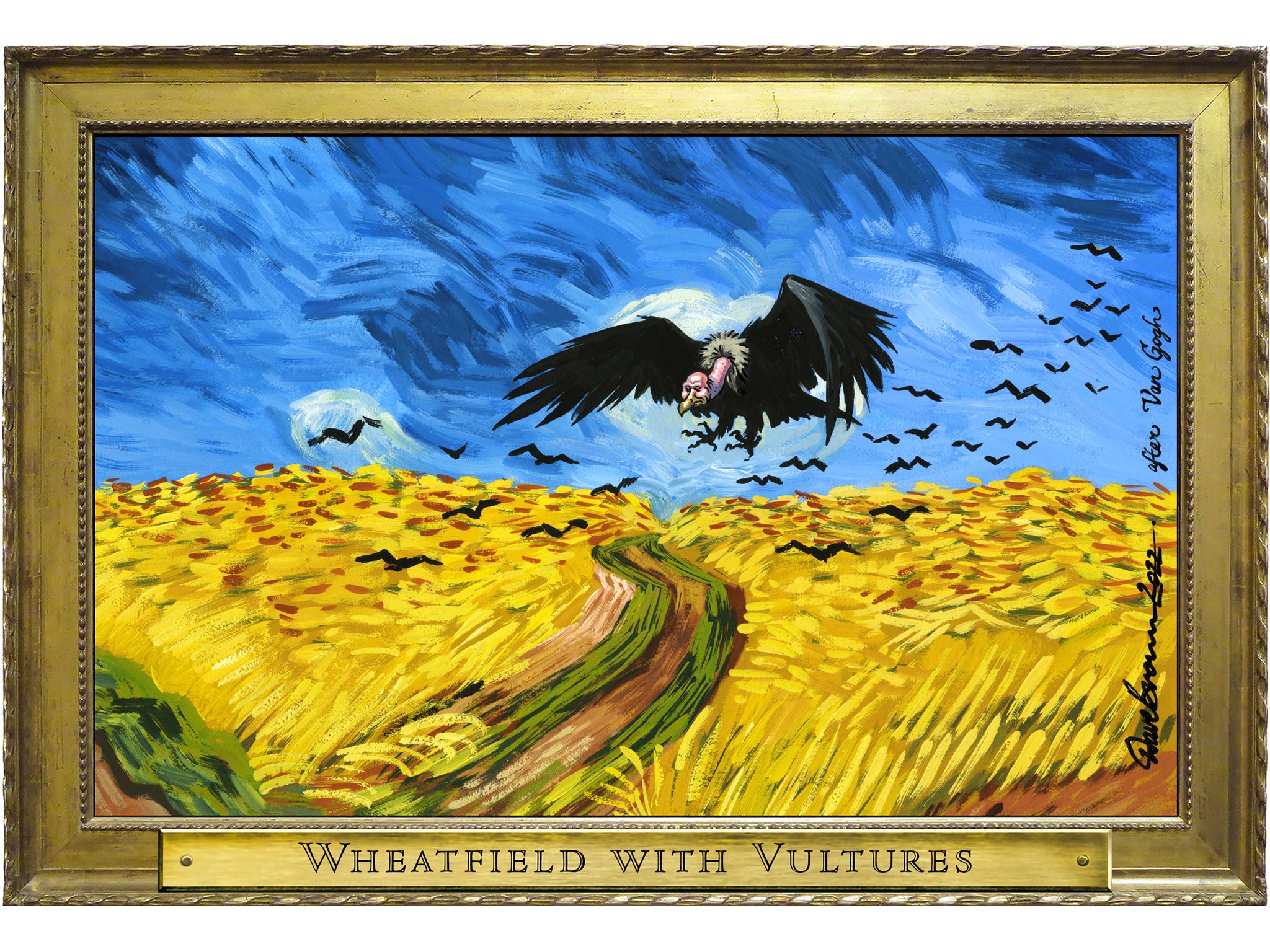The security of members of Nato and the European Union is at stake
Editorial: It has dawned on western leaders that the future freedom of their peoples depends critically on what happens to Ukraine and, quite possibly, Moldova – as well as Poland and Estonia

In case anyone in the international community was in any doubt about Russia’s attitude to peace, a missile was lobbed at Kyiv, just as the secretary-general of the United Nations was there to see for himself the effects of the invasion.
“A postcard from Moscow” the Ukrainian authorities described it, and the message required no translation. Peace, in the form of a ceasefire – and still less, a permanent agreement – seems further away than at any point since the invasion began. Indeed, slowly, incrementally but unmistakably, the situation is escalating – even as the war on the ground enters a period of attritional, static warfare.
Russian atrocities have appalled public opinion, and ushered governments in the west towards more determined action. Things that would have been unthinkable have now become inevitable. A few months ago, for example, German military assistance to Ukraine amounted to not very much more than new helmets.
Now they are dispatching tanks in scale “in the medium double digits”. Even more substantial military deployments are being made to Nato’s eastern and northern flanks, including an extra 8,000 British troops.
Finland and Sweden look to be on the verge of joining Nato, and are already embedded in the Joint Expeditionary Force with the UK, Denmark, the Netherlands, Iceland, Norway and the Baltic states. With the exception of Moldova, almost the whole of Europe is united in some form of defensive military alliance. Meanwhile, the economic war against Russia continues, albeit with an unhelpful lack of support from the likes of China and India.
If Ukraine has not yet won the war, Russia is losing it. The idea that Vladimir Putin could present Ukraine as some sort of prize at the 9 May celebration of victory in the Second World War is now far-fetched. Perhaps a large-scale tank battle, ironically reminiscent of the battles at Kursk and around Ukraine against the real Nazis during the Great Patriotic War, might tip the balance decisively in Russia’s favour: but that is far from obvious, given the scale of western military assistance in recent weeks, and the design flaws and tactical mistakes the Russian tank divisions suffer from. Russian victory, in any real sense, seems remote.
Yet, more than two months ago, when Russia rolled its ill-equipped, mostly conscripted troops in Ukraine, it expected Kyiv to fall within days – if not hours. Now, the experts say the war may drag on for years. President Zelensky was either going to be assassinated or flee. The Russians would be welcomed as liberators, freeing Ukraine from Nazidom.
As was the experience with Chechnya, Georgia, Syria and the annexation of Crimea, the west was expected to do little in response. Now enough time has passed, and Russian war crimes have been committed, to guarantee a flow of sophisticated western arms to a highly motivated and efficient Ukraine military, effective far beyond its size.
Vladimir Putin miscalculated, and he has been humbled and left exposed. The flagship of the Black Sea fleet has been sunk, in an almost nineteenth-century humiliation. His “special military operation” has merely demonstrated the weakness of his armed forces.
Unable to win his battles under the laws of war and the Geneva conventions, all he has left is a resort to terror against the civilian population, and the ever-present threat of using Russia’s nuclear arsenal.
To keep up to speed with all the latest opinions and comment sign up to our free weekly Voices Dispatches newsletter by clicking here
So far from the west “poking the Russian bear”, it is now President Putin who is driving the west into a corner. It is now apparent that his ambitions will not stop at Ukraine, just as they did not stop at Georgia or Crimea and the occupation of eastern Ukraine.
The security of members of Nato and the European Union is at stake. It has dawned on western leaders that the future freedom of their peoples depends critically on what happens to Ukraine and, quite possibly, Moldova, as well as Poland or Estonia, say.
Rather than merely trying to contain Russia and engage with the Kremlin and trade with Russia to create detente, it is now plain that Russia has become a rogue state. It cannot be trusted, and it cannot be negotiated with – it doesn’t even want to talk, as Secretary-General Guterres discovered.
It is essential that Putin not succeed in his attempt to subjugate Ukraine, and highly desirable that he should be defeated; and ideally forced to disgorge Crimea and illegally occupied sections of the Donbas.
There has certainly been an escalation in nuclear tensions, but the function of a nuclear deterrent is to make the risks of the ultimate escalation unacceptable because it implies the destruction of all the parties, and life on Earth for that matter.
The west has gradually scaled up its support for Ukraine, and called Vladimir Putin’s bluff, and he hasn’t wiped Chicago or Paris off the face of the Earth.






Join our commenting forum
Join thought-provoking conversations, follow other Independent readers and see their replies
Comments